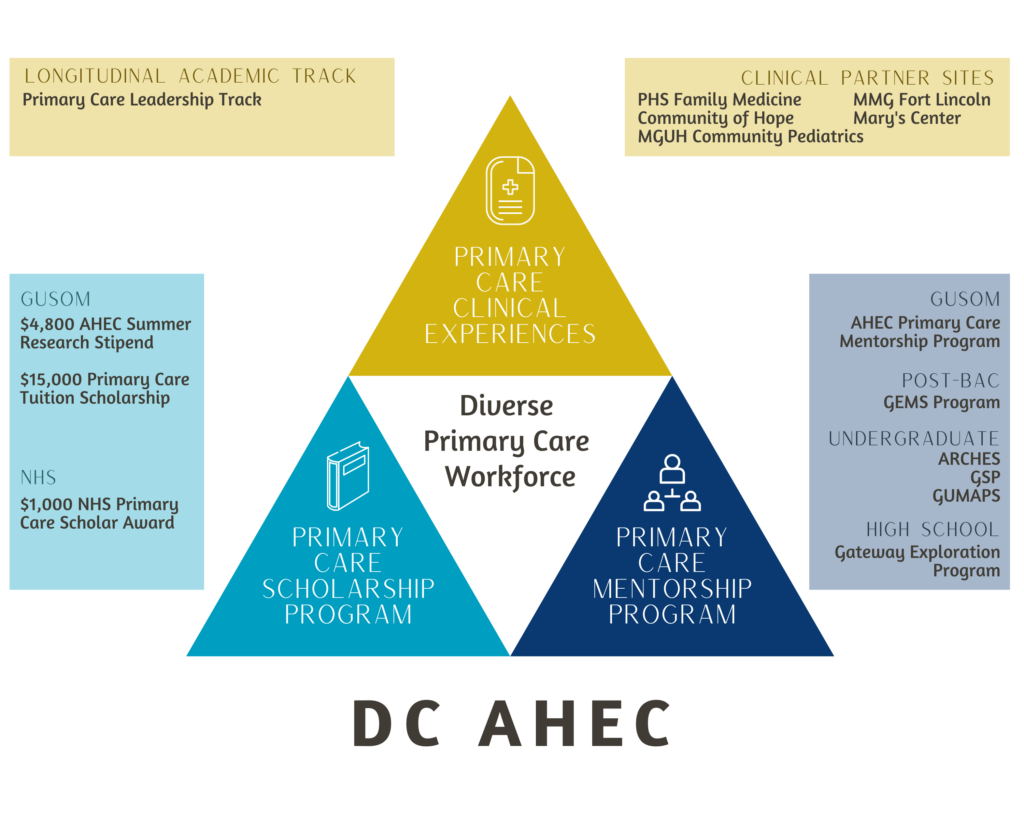Area Health Education Centers
Area Health Education Centers (AHEC)
Area Health Education Centers programs were developed by Congress in 1971. In brief, Congress did this to address the need to recruit, train and retain health professionals committed to underserved populations. In addition, the program helps bring the resources of academic medicine to address local community health needs. Currently, there are approximately 56 AHEC programs with more than 235 centers in operation in almost every state and the District of Columbia.
The program’s mission moreover is to enhance access to quality health care, particularly primary and preventive care, by improving the supply and distribution of healthcare professionals via strategic partnerships with academic programs, communities, and professional organizations.

The District of Columbia and AHEC
On the whole, the network serves with the mission of meeting health workforce needs and improving the health of the public of the District of Columbia. AHEC also has a long history in the District of Columbia. Therefore, as the newest Health Resources and Service Administration (HRSA) AHEC grantee, Georgetown University (GU) is committed to continuing to provide the services that have traditionally been associated to the AHEC.
Similarly, the dedication to maintaining the traditional services associated with the AHEC program makes Georgetown University the latest grantee of the Health Resources and Service Administration.
Promoting diversity in healthcare and improving the distribution of primary care providers in underserved areas is the focus of DC AHEC. Their strategy includes creating a comprehensive pipeline and mentorship program, along with extensive education and training for inter-professional AHEC Scholars, to ensure high-quality care in these communities.
Georgetown University AHEC Program Focus
This project is supported by the Health Resources and Services Administration (HRSA) of the U.S. Department of Health and Human Services (HHS) as part of an award totaling $722,740 with 50% financed with non-governmental sources. The contents are those of the author(s) and do not necessarily represent the official views of, nor an endorsement, by HRSA, HHS, or the U.S. Government.
HRSA.gov
